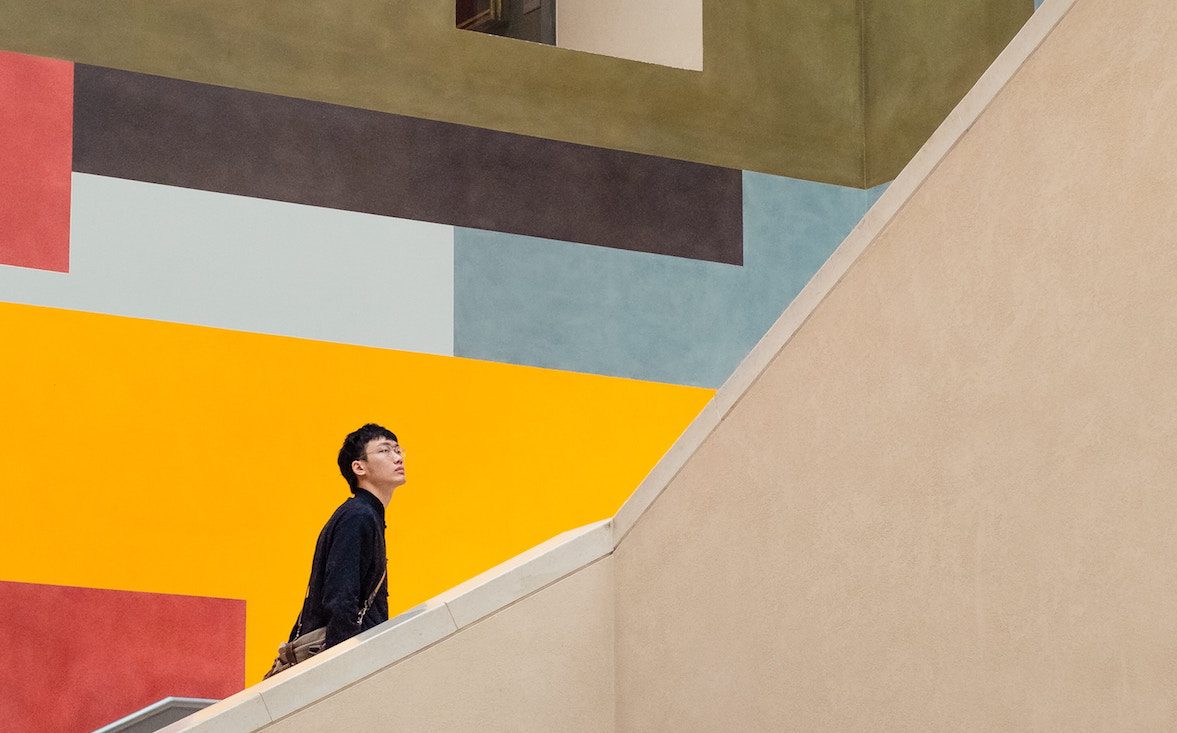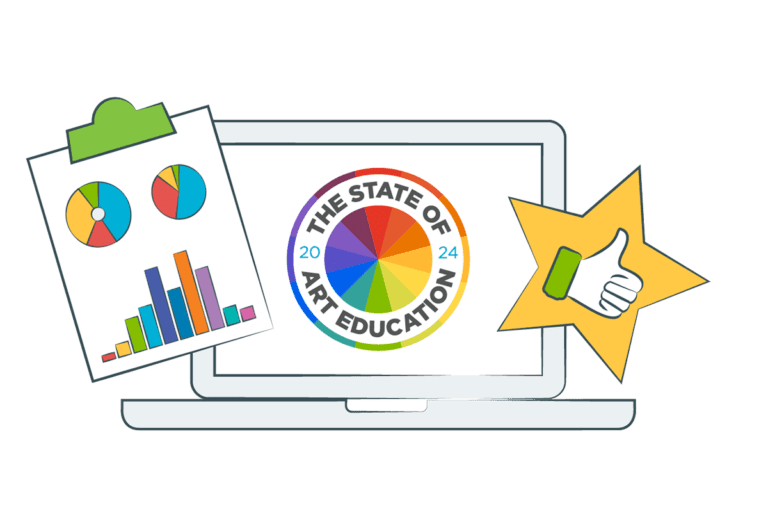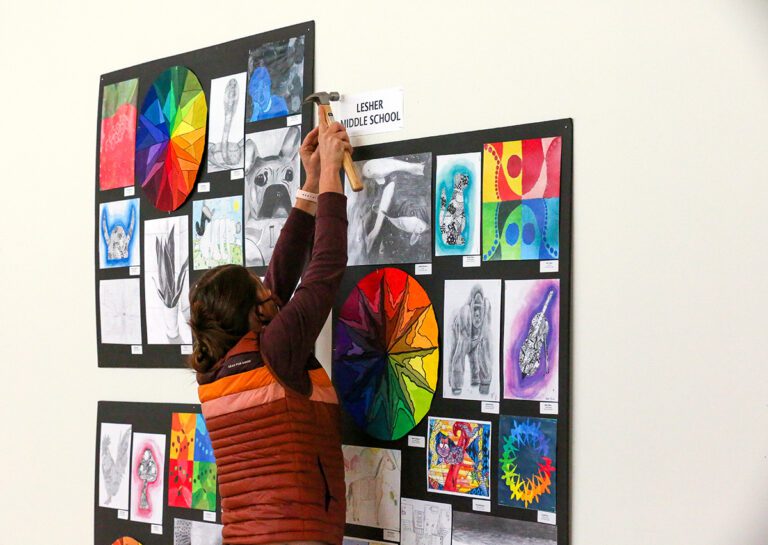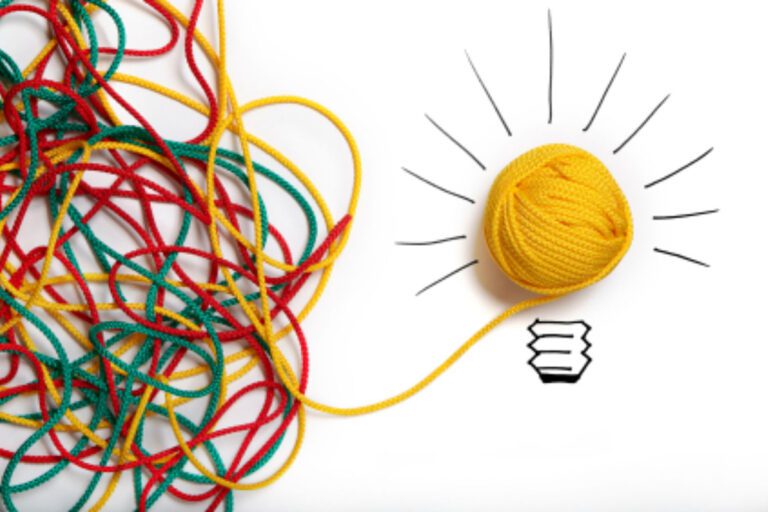After fourteen years in the profession, I can admit the seasons of my career have been varied. Most years I cannot imagine a better job, but there have also been times I have felt crushed by my professional obligations. Many factors contribute to a sense of professional “burn out,” but one of the most pervasive is the constant pace of change in public education.
Whether it is a new curriculum or assessment mandate, an additional district initiative, or a fluctuation in a current teaching position, forced change can throw even the most seasoned art teacher into a tailspin as they grapple to regroup and adjust.
Recently, I was faced with the potential for a significant (and not-so-ideal) change in my teaching assignment. Although I won’t know exactly what the change will look like until next fall, I have had some time to re-examine the idea of professional change and how to handle it with grace.
This process solidified 4 personal beliefs related to professional change.
I hope these will be helpful to you, too, no matter the season of your career.
1. Recognize that it is people who matter, and invest your energy accordingly.
![]()
Social media is full of heartbreaking tales of art teachers in dire circumstances. They have no resources, terrible working conditions, or disheartening conflicts with unsupportive parents. I am going to go out on a limb and say that while all of these are extremely difficult and unfortunate scenarios I wouldn’t wish on any teacher, you can still have a successful art program while dealing with them.
For me, the non-negotiable ingredient, the thing you NEED, or you will perish, is collegial support. Whether it comes from your administration, your department, or an incredible online network of like-minded art teachers, you need the support of people who “get you” and “get what you are doing.” If they aren’t at your place of work, find them elsewhere. Because, if you can connect with people who support you through change, you can cope with just about anything.
2. Look for the opportunity.
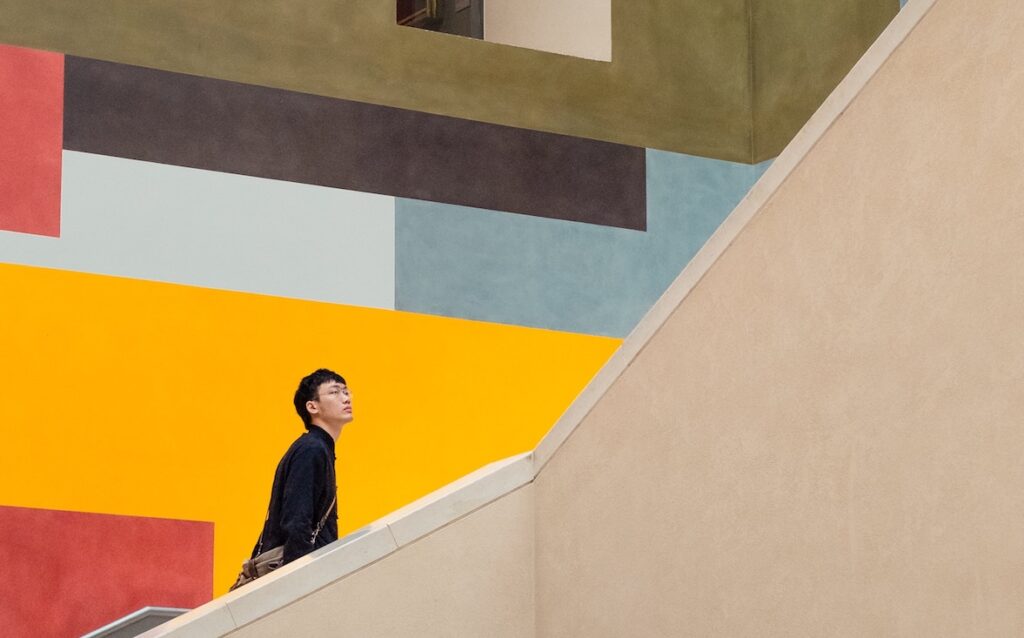
I have experienced a variety of “less-than-ideal” teaching scenarios, including the “on the cart” experience. At the risk of sounding very much like Pollyanna, I’d challenge you to look at how you can re-frame your challenging experience as an opportunity. Yes, teaching from a cart was a tremendously inconvenient hardship. I didn’t have sink access, it was an organizational nightmare, and three-dimensional projects became nearly impossible.
However, it was also a precious opportunity. Without a classroom to regularly clean or bulletin boards to update, I found I had more free time (don’t laugh). That year, I decided not to dwell on the downside. Instead, I took full advantage of the opportunity. Instead of investing time in cleaning, I achieved National Board certification, a process I previously thought was unattainable with my schedule.
So, whatever the challenge is, look at the possibilities. Do you have a meager budget? The opportunity might lie in making community connections to solicit donations. Do you have a tough class load? This may be your chance to hone classroom management skills to serve you better for the rest of your career. Do you have a rough relationship with your administration? Maybe it is time to focus on developing stronger advocacy skills for yourself and your program. Most people can’t change their teaching circumstances, but they CAN change their response.
Whatever change you’re seeking support for, Art Ed PRO has you covered. Whether you want to brush up on classroom management, find strategies for teaching a new age level, or just want to get yourself into a growth mindset for the challenges ahead, we’ve got your back! Check out everything we have to offer right here.
3. Don’t let your circumstances define you. (Be the coffee.)
I once heard a parable about dealing with change and adversity that resonated with me… perhaps because it has a coffee connection? There are several versions available on the internet (including this one from Sunny Skyz), but they all begin in the same way. A father is helping his daughter cope with change, and illustrates his philosophy by putting an egg, a potato, and some coffee beans into hot water.

As the story goes, the potato goes into the water tough and strong but comes out soft and weak. The egg goes into the water fragile but comes out hard. But, the coffee does something the others cannot. As the grounds are exposed to the water, they make something new.
Make the conscious choice not to become weak (or hardened) by the professional changes in your life. Make the decision to transcend them, and transform them into personal opportunity.
4. Accept that even change will change.
It is truly an application of Murphy’s Law if you are well prepared for a change, it won’t actually happen. I mentioned I was recently faced with a substantial professional change. At first, the change was to take place within a few weeks. After I agonized and mentally committed to facing it on my own positive terms, a strange thing happened. The scales tipped in my favor, and I learned the change wouldn’t be implemented until fall.
The time spent contemplating the impending possibility was not in vain. I came out the other side with a deeper appreciation of my current admin, and a renewed gratitude for what I’ve got.
Ultimately, we will continually face a constant stream of professional changes as art teachers. Some will be exciting and filled with a sense of promise. But, many will feel like obligations we would never choose for ourselves. Just remember, in our jobs, it’s people who matter: our students and the colleagues we respect (in our districts or across the country). Focus your energy on these relationships, which will bring you a sense of accomplishment and joy in your teaching. Forget those circumstances you cannot personally influence, and stretch toward the positive possibilities that come with all changes.
What profound professional changes have you experienced during your career, positive or negative?
What advice do you have for other art teachers who are facing significant professional changes?
Magazine articles and podcasts are opinions of professional education contributors and do not necessarily represent the position of the Art of Education University (AOEU) or its academic offerings. Contributors use terms in the way they are most often talked about in the scope of their educational experiences.
